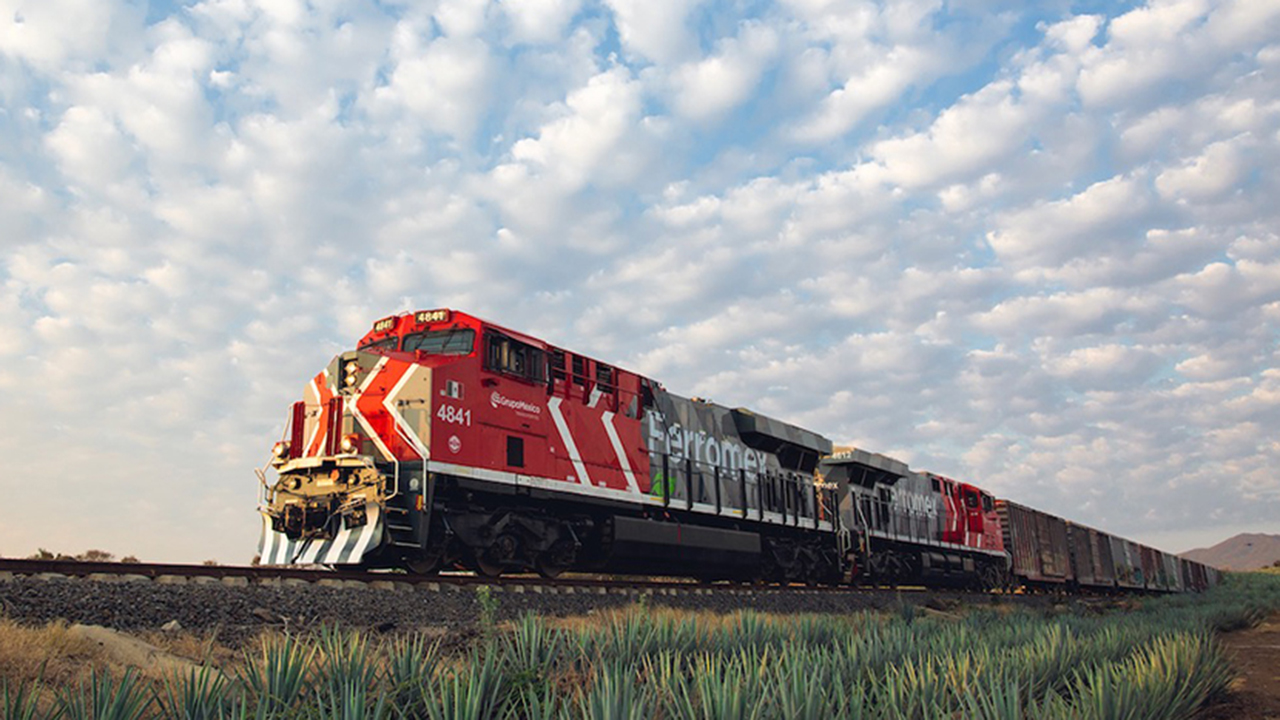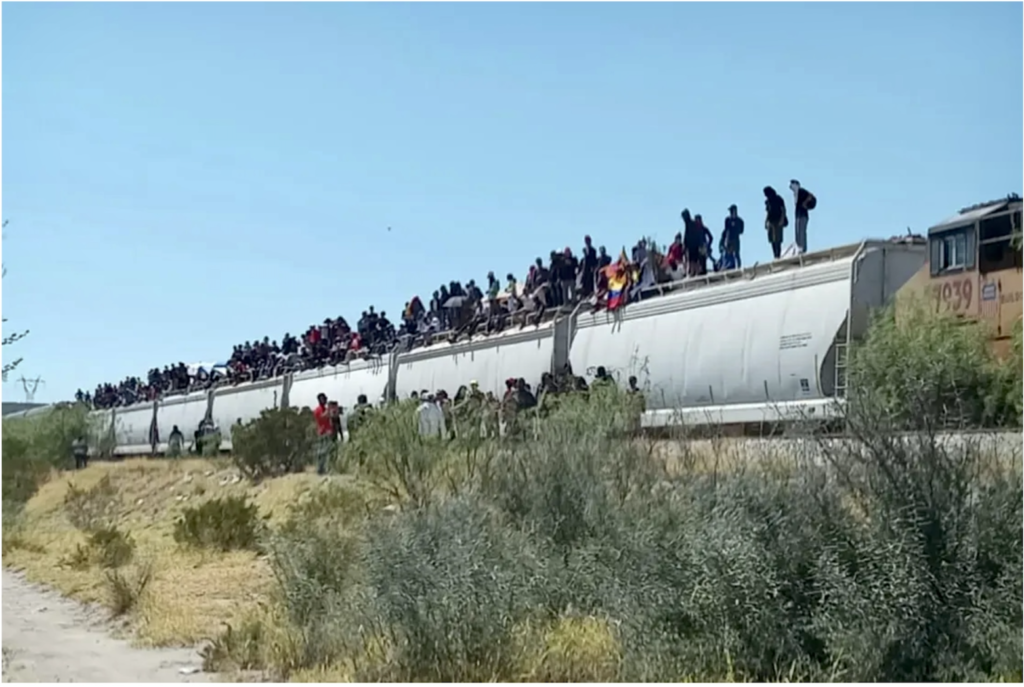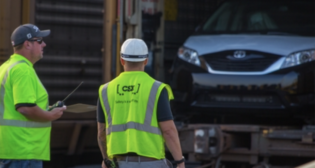
Report: Ferromex Temporarily Suspending Service (Updated)
Written by Marybeth Luczak, Executive Editor
(Ferromex Photograph)
Mexican railway operator Ferromex on Sept. 19 said it was temporarily suspending 60 trains on south-north routes because of an increasing number of migrants climbing aboard railcars and suffering injuries, according to news reports. On Sept. 20, some trains restarted service. Union Pacific and BNSF issued embargoes at Eagle Pass in Texas.
“In recent days nearly a half dozen regrettable cases of injury or death were registered among the groups of people who on an individual basis or in families, including girls and boys, boarded freight trains on their way north, despite the grave danger that implies,” Grupo Mexico, the railroad’s owner, said in a statement released in Spanish (below), according to a report in The Hill.
Migrant groups congregating in rail yards and on trains include “more than 1,500 people in Torreón, Coahuila, 200 miles south of the international border; 800 people in Irapuato, Guanajuato in central Mexico, around 1,000 people in the central northern state of Aguascalientes, and more than 1,000 people on the route between Chihuahua and Ciudad Juárez, the city that borders El Paso,” the company reported, according to The Hill.
The railroad company said stopping the trains, which are hauling cargo that would fill 1,800 tractor trailers, was “‘to protect the physical safety of the migrants,’ while it awaited action by authorities to solve the problem,” according to the Associated Press (AP).
Ferromex has routes running to five U.S.-Mexico border crossings, and according to The Hill, Grupo Mexico “said it had informed its clients about interruptions to supply lines and international commerce.” Grupo Mexico estimated that stopping the trains represents a daily loss of $2.34 million, according to Reuters.

The impact of Ferromex, Mexico’s largest concessionary rail operator, halting trains will be “very important,” Ana Bertha Gutiérrez, International Trade Coordinator at the Mexican Institute for Competitiveness, told the AP. “She noted the measure could hit industrial states like Nuevo Leon, Baja California and Chihuahua hard, given their links to the U.S. market.”
Acccording to the AP, “[m]igrants have long used the trains, known collectively as ‘The Beast,’ to hitch rides from as far south as Oaxaca state to the U.S. border. About a decade ago, the Mexican government briefly staged raids on the trains to discourage the practice, but later largely abandoned the effort.”
The news outlet noted that “Mexico is on track to receive more asylum applications this year than ever before as the flow of migrants threatens to overwhelm governments of several Latin American countries along the migratory route.
“Andrés Ramírez Silva, the director of Mexico’s refugee agency, said last week that the number of asylum applications his agency receives this year could reach 150,000, well above the 129,000 record set in 2021.”
According to a Sept. 20 Reuters report, Grupo Mexico said that some trains have restarted service “on routes where no ‘heightened risk’ had been identified. The company did not say how many trains were still not operational.” It noted that it would “continue evaluating the situation and was in touch with authorities over how it proceeded.”
The President of Mexico, Andres Manuel Lopez Obrador, on Sept. 20 called the Grupo Mexico train stoppage announcement “strange” and “unusual,” Reuters reported.
“Mexico’s National Migration Institute has proposed adding agents to the affected routes, noting in a statement it also requested the company increase its private security aboard trains,” according to Reuters. “Ferromex executives will meet with members of the Mexican government and the U.S. Customs and Border Protection on Friday [Sept. 22] to discuss further measures, the Mexican institute added.”
Canadian Pacific Kansas City Executive Vice President and Chief Transformation Officer John Orr told Railway Age on Sept. 20 that his railroad is so far not experiencing issues with migrants.
Union Pacific (UP) on Sept. 20 released an online customer notification, saying, “The U.S. Customs and Border Protection (CBP) Agency closed train traffic at Eagle Pass Wednesday, pausing rail cars. The closure is due to the migrant crisis on the Southern Border. Union Pacific’s other gateways cannot handle the extra traffic and we are notifying our customers of an embargo at Eagle Pass, effective immediately. This will help us better manage your shipments during this dynamic and rapidly developing situation. We remain in communication with CBP and will continue normal operations at our other gateways.”
BNSF on Sept. 21 issued the following online service advisory, effective Sept. 20: “Following the Department of Homeland Security border closure in Eagle Pass, TX, due to safety and security concerns in the area, BNSF has issued an embargo (BNSF001723) on traffic destined for interchange with Ferromex (FXE) at both the Eagle Pass and El Paso junctions. All traffic interchanging at Eagle Pass has been stopped at this time to assist in clearing out congestion in the area. Through the embargo, BNSF is not currently accepting new shipments through El Paso. However, as conditions allow, we will be moving some shipments already in route. No permits are being issued at the present time. We will continue to keep you updated as this situation progresses.”



